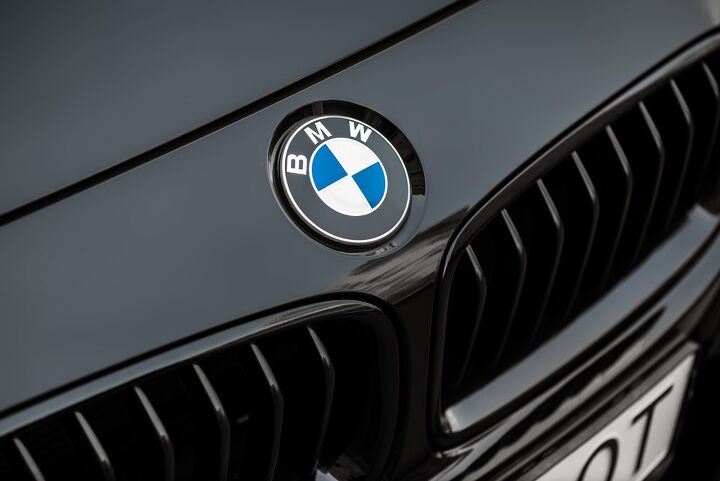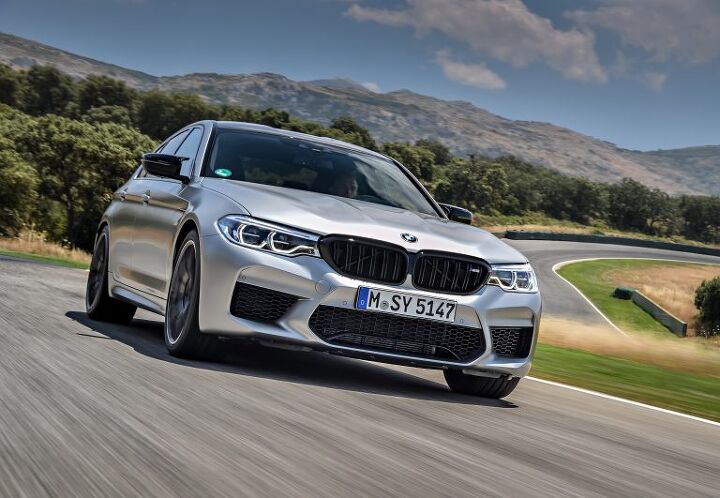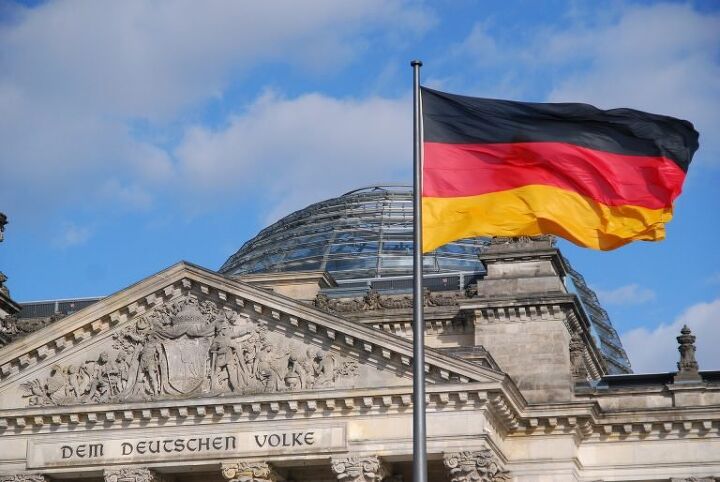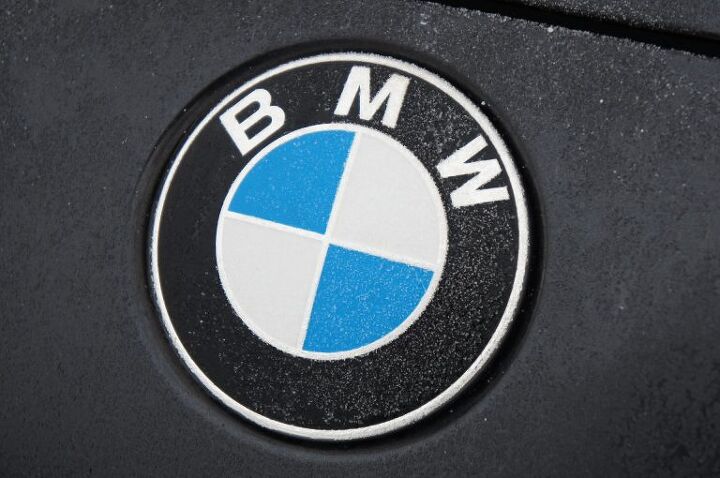#GermanAutomakers
German Automakers Aren't Interested in Returning to Normal
With supply chain hiccups crippling the automotive industry’s ability to conduct business as normal, resulting in rolling production stalls and skyrocketing vehicle prices, manufacturers looked to be in serious trouble throughout the pandemic. But we learned that wasn’t to be the case by the summer. Automakers were posting “surprise profits” because people still needed cars. We also found out there’s been a growing appetite for expensive (see: highly profitable) models and the industry saved itself a bundle by not needing to pay for office space or line workers, as COVID restrictions kept everyone at home.
Having considered the above, most automakers are seriously considering how they can further leverage this new modality. German manufacturers have even said they’re not that interested in going back to the normal way of doing things — instead electing to intentionally limit volumes and focus on high-end models that will yield the greatest return on investment. But it’s not quite the curveball it seems, as some companies were already ditching the volume approach.
BMW Tries to Picture M Division's Future, Says No Cap on Power
A lot of people gripe about BMW losing its edge. Formerly reserved for the greatest performance vehicles in its lineup, the M designation has migrated to encompass a rather large subset of the BMW fleet. While this has undoubtedly helped the brand boost its sales for years, it also muddied the waters of what constitutes an M.
In the past, BMW’s M vehicles denoted a marked increase in horsepower and real-world performance. Now they’re intermixed with M Sport trims that split the difference between standard fare and bonkers M in terms of output. And they haven’t been turning up the dial lately. In fact, the performance division of all German automakers seem to have slowed down on maximizing performance while the core business prioritizes fuel efficiency and electrification — largely because it’s expected of them by regulators.
It may not be so cut and dried. BMW CEO Markus Flasch has taken a keen interest in the M division, saying “we have to be very careful to preserve what M stands for” while evolving the brand. More recently, he said the automaker had no intent to cap output to appease anyone, claiming that the company’s performance arm has to think carefully about the future.
European Cartel Probe Suspects German Automakers of Illegal Agreements
While Europe appears infinitely suspicious of German automakers, it hasn’t been nearly as eager to cuff suspects and cart them off to the slammer. Considering how unappealing Japan’s treatment of a former Nissan employee happened to be with the general public (regardless of his guilt/innocence), that’s probably wise. Slow and sure is the ideal strategy for tackling corporate corruption — it just has the unfortunate consequence of dragging everything out.
In 2018, BMW, Daimler, and Volkswagen Group became the focus of an investigation aimed at uncovering illegal cooperation. Allegations going back to 2017 stipulated the three had coordinated on the rollout of clean emissions technology (specifically AdBlue); at the same time, Germany was under heavy scrutiny for the leeway it was giving automakers after VW’s diesel emission scandal. Before long, claims arose that Germany’s manufacturers had been effectively running an automotive cartel for decades, with supporting evidence slowly mounting.
EU Launches Emissions Collusion Investigation Against German Automakers
Roughly one year ago, German automakers were confronted with a crisis. Following Volkswagen’s diesel emissions fiasco, European antitrust regulators became suspicious that BMW, Daimler, and VW Group were involved in a longstanding automotive cartel that cooperated on decisions regarding technical issues, development, supplier management, and illegal price fixing. Investigators were also concerned manufacturers worked together to standardize diesel treatment fluid (AdBlue) reservoirs to reduce exhaust emissions, then encouraged each other to cheat on emissions tests when they were deemed insufficient.
This resulted in a series of raids and then almost a full year of silence on the matter. However, if Volkswagen’s dieselgate has taught us anything, it’s that German authorities prefer a snail’s pace when pursuing a criminal probe.
Apparently unsatisfied with the initial findings, the European Commission opened an in-depth and official investigation on Tuesday against the “circle of five,” a group that includes Audi, VW, Porsche, Daimler, and BMW. The quintet is accused of holding meetings where they colluded to limit the development and application of certain emissions control systems for cars sold in Europe. There’s also an accusation of price fixing.
Trade War Watch: Volvo Worried About New U.S. Factory, Germans Want Tariffs Killed Entirely
The ground beneath the factory Volvo Cars opened Wednesday in South Carolina grew shakier after company executives warned that the U.S.-China trade dispute could undo plans to create up to 4,000 auto jobs in the state.
As you probably know, Volvo is currently owned by Chinese automaker Geely — which has a lot to lose if trade relations break down. Geely intends to export Volvo’s American-built cars to markets outside the United States. The situation’s a problematic one, as Volvo also imports the bulk of its U.S. market vehicles and any economic hurdles would surely gum up the works.
BMW Raided in German Cartel Investigation, Daimler Seeks Immunity
Back in July, German authorities became concerned that the country’s manufacturers had been operating one of the largest automotive cartels in history. With many auto executives still under the microscope for diesel emission manipulation, combined with inter-familial strife between the Piech and Porsche clans, Germany’s auto industry was starting to resemble a PG version of the film Goodfellas — with a dash of Dallas, for flavor.
Despite some rather serious accusations, nothing really came of the cartel investigation. We were beginning to wonder if it was much ado about nothing. But Germany’s antitrust officials hadn’t forgotten — they were simply biding their time during preliminary investigations into corporate collusion and price-fixing. Earlier this week, they made their big move and raided BMW’s headquarters.
Germany Forced to Appear Proactive as Anti-diesel Prejudice Swells in Europe
With Paris, Madrid, Athens, and Mexico City all pledging to ban diesel vehicles from entry within the next few years, the fuel’s future doesn’t look particularly bright. While citywide bans like these are becoming increasingly popular in Europe, diesel vehicles still account for almost half of the continent’s registered vehicles.
Germany, which has been speedily moving away from the fuel since Volkswagen’s emissions fiasco, provided more than its fair share of those diesel-powered models. It’s been mulling over how to handle it’s own regulatory matters pertaining to the fuel and the rest of the European Union’s intense pressure doesn’t seem to have fazed it.
Instead of enacting the same transportation ban on diesel vehicles as seen in Paris, Germany has decided to furnish its automakers with the opportunity to clean up their act. Industry officials and politicians have agreed to implement software updates on existing vehicles specifically to keep them eligible for operation within major metropolitan areas. Considering Mercedes-Benz just offered to “voluntarily” recall 3 million Euro-spec cars fitted with diesel engines, that’s incredibly good timing. Likewise, Volkswagen Group claims it will update 850,000 Porsche and Audi vehicles equipped with larger diesel motors.






















Recent Comments